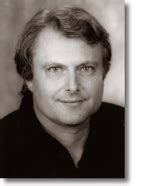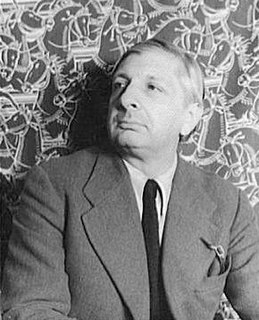A Quote by Chinua Achebe
And theories are no more than fictions which help us to make sense of experience and which are subject to disconfirmation when their explanations are no longer adequate.
Quote Topics
Related Quotes
Life and work are not things apart. Work is more than gaining privileges and possessions; it is ongoing, ecstatic, LIVING experience. When we tap into living experience, we no longer feel as though we must be king. We can just be ALIVE at work! When we live in the bliss, there is no difficulty which is insurmountable. If we miss the bliss, there is no compensation which is adequate.
Even mistaken hypotheses and theories are of use in leading to discoveries. This remark is true in all the sciences. The alchemists founded chemistry by pursuing chimerical problems and theories which are false. In physical science, which is more advanced than biology, we might still cite men of science who make great discoveries by relying on false theories.
More than by fear of going astray, my hope is that we will be moved by the fear of remaining shut up within structures which give us a false sense of security, within rules which make us harsh judges, within habits which make us feel safe, while at our door people are starving and Jesus does not tire of saying to us: 'Give them something to eat.'
In conscious life, we achieve some sense of ourselves as reasonably unified, coherent selves, and without this action would be impossible. But all this is merely at the 'imaginary' level of the ego, which is no more than the tip of the iceberg of the human subject known to psychoanalysis. The ego is function or effect of a subject which is always dispersed, never identical with itself, strung out along the chains of the discourses which constitute it.
The scientific method is the ultimate elegant explanation. It is the ultimate foundation for anything worthy of the name "explanation". It makes no sense to talk about explanations without having a process for deciding which are right and which are wrong, and in a broad sense that is what the scientific method is about. All of the other wonderful explanations celebrated here owe their origin and credibility to the process by which they are verified-the scientific method.
Even the most scientific investigator in science, the most thoroughgoing Positivist, cannot dispense with fiction; he must at least make use of categories, and they are already fictions, analogical fictions, or labels, which give us the same pleasure as children receive when they are told the "name" of a thing.
I say then, that belief is nothing but a more vivid, lively, forcible, firm, steady conception of an object, than what the imagination alone is ever able to attain. This variety of terms, which may seem so unphilosophical, is intended only to express that act of the mind, which renders realities, or what is taken for such, more present to us than fictions, causes them to weigh more in the thought, and gives them a superior influence on the passions and imagination.
It is essential that the revelation we receive, the conception of an image which embraces a certain thing, which has no sense in itself, which has no subject, which means 'absolutely nothing' from the logical point of view.. ..should speak so strongly in us, evoke such agony or joy, that we feel compelled to paint.
I don't know if the term 'liberation theology,' which can be interpreted in a very positive sense, will help us much. What's important is the common rationality to which the church offers a fundamental contribution, and which must always help in the education of conscience, both for public and for private life.






































